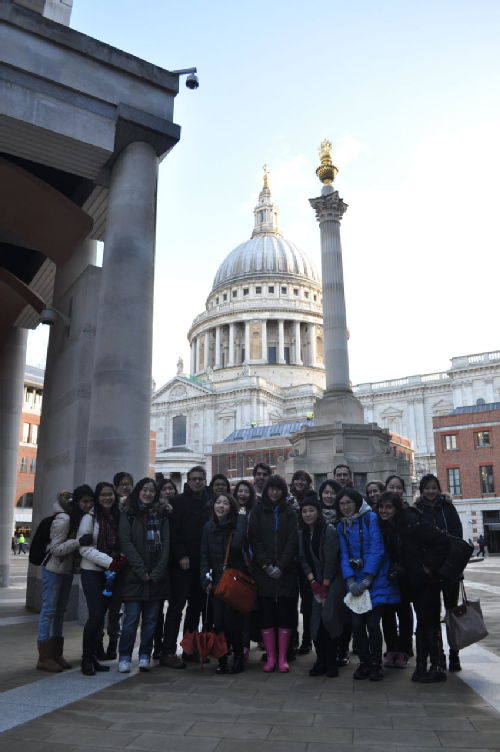Global City — the Centre for Cultural Policy Studies in London
Warwick is increasingly teaching in London. And this term saw 23 of our students from the Centre follow the module The Global City -- along with several tourists who think I am an official tour guide!
We are undertaking half the module on location in central London. The rationale is that on many of the indices ranking the ‘global cities’ of the world, London comes top or near-top in all of them. And furthermore, London has a rich a complex culture, along with some suitably complex cultural policies. Our theoretical framework, however, is largely derived from the International Development discourse on creative economy – looking at questions of social justice, global urbanization, democracy and rights to the city, as well as the cultural policy interests in the creative industries and arts institutions.
SEE our Facebook page:
https://www.facebook.com/pages/Global-City-Culture-Development/1594597290774228?ref=hl

Our field trip itinerary is as follows:
Field Trip 1:Walking the City: the semiotics of the Global cityscape: from the BBC HQ, Langham Place, to Oxford St and then Regent’s Street (global brands; economic globalization) – Leicester Sq. – St Martins-in-the-Fields – Trafalgar Square – The Mall – Whitehall (Government) – Parliament Square and ending up outside the old County Hall at the London Eye.
Field Trip 2:Memory City: the cultural politics of history & heritage: this started at the still amazing cultural centre of the Barbican – then onto the Museum of London (keepers of the city’s memory) –– then through the City of London (the Square Mile) seeing all the new post-postmodern architecture – Past Tower of London and ending up at Tower Bridge.
Field Trip 3:Cultural Capital: competitive urban cultural policy: we started at the National Gallery (and why a global city posseses a ‘national’ gallery full of art from other countries), and onto the South Bank Centre, which is an historically fascinating lesson in urban cultural regeneration – then walking down Bankside to Shakespeare’s Globe (replica heritage), spending most of our time at the postmodern cathedral of art, Tate Modern.
Field Trip 4: UrbanCreative Economy: the spaces and places of the creative industries: this seminar is a comparative assessment of the growth of London’s creative industries, looking at Camden Lock – Soho – Covent Garden – then Hoxton.
Field Trip 5: Mega-event City and the fate of ‘the local’: the London 2012 Olympics and the East End Stratford Town: no contemporary tour around the cultural development of the metropolis could by-pass the huge Olympic urban regeneration project and the now named Queen Elizabeth Olympic Park.
 Jonathan Vickery
Jonathan Vickery


 Loading…
Loading…
Add a comment
You are not allowed to comment on this entry as it has restricted commenting permissions.